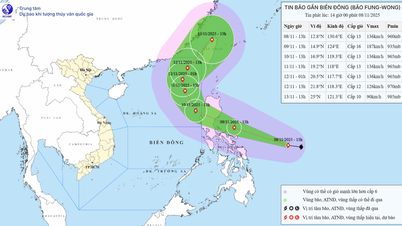Beverages: The Big Shift to Non-Alcoholic, Natural and Low Sugar
The market has moved beyond the stage of "eating to be full" or "drinking to quench thirst" to enter the era of "eating to be healthy, drinking to live green", with values revolving around health, function, experience and social responsibility.
One of the most prominent trends is the continued growth of the non-alcoholic beverage segment. Danish consumers are increasingly favoring natural fruit juices, vegetable smoothies, herbal teas and lightly fermented products, thanks to their convenience, pleasant taste and associated health benefits. Products without artificial colors, sugars and caffeine are dominating purchase decisions.
However, around 52% of Danish consumers still buy alcohol regularly, higher than the global average, with beer, wine and spirits being popular choices, mainly associated with social culture and hospitality. While not cutting back completely, consumers are shifting towards lower alcohol products, organic or produced using sustainable processes.
Coffee and tea remain central to daily consumption habits, particularly in the morning and early afternoon. In this segment, price and brand have a major influence on purchasing behaviour, while bean origin, roasting method and Fair Trade certification are increasingly important.
Essential Foods: Prioritize Health, Expiry Dates, and Price
When it comes to staple foods, Danish consumers show a high level of concern for health and shelf life. While freshness, brand name or packaging design have little influence on choice, affordability, balanced nutrition and long shelf life are top priorities.
Cereals and breads high in protein, fiber, and low in sugar or fat are seeing steady growth, reflecting the combination of dietary needs, blood sugar control, and digestive support. Milk and dairy products – especially lactose-free, probiotic, or organic – continue to represent a large share of the consumer basket.
Another notable shift is the trend towards a reduction in red meat consumption and an increase in fish and seafood choices, reflecting a greater awareness of nutrition and environmental impact. Canned or frozen seafood products, with traceability, are highly valued by consumers.
Processed and Premium Foods: Combining Convenience and Quality
The Danish market shows strong growth in the smart processed food segment where value lies not in being “cheap” but in being “smart, clean and convenient”.
Products such as premium frozen ready meals, ready-made sauces, organic spices, and regional sauces are growing strongly, as long as they meet the criteria: natural ingredients, low sugar – low salt, no preservatives, and transparent origin. Consumers are willing to pay more if the product helps save cooking time but still ensures taste and quality.
Snacks, plant-based foods and sports products: Breakout segments
Snacking is no longer a sin if it is produced properly. Danish consumers are looking for organic snacks, nutritional seeds, plant-based protein bars, low-sugar cakes, and naturally fermented products, especially among young people and office workers.
Meanwhile, plant-based foods, including meat alternatives, plant-based milks, soy, oats and chia seeds, are becoming the market’s leading growth drivers. Denmark now has one of the highest rates of plant-based consumption in Europe, thanks to a strong awareness of climate, personal health and animal rights.
Functional foods and sports nutrition have also emerged strongly, serving specialized groups such as gym goers, athletes, dieters or the elderly who need nutritional supplements. Notable products include protein powders, multivitamin supplements, natural electrolyte drinks and immune-boosting foods.
Strategic implications for Vietnamese businesses
With a market that demands high standards, values transparency and focuses on production ethics, Vietnamese businesses when approaching Denmark need to note:
• Position products according to the criteria of health - convenience - sustainability, especially in product groups such as natural juice, premium instant coffee, herbal tea, low-sugar dried fruit, nut snacks, nutritious instant noodles/pho...
• Investing in green packaging, recyclability and traceability – factors that are increasingly becoming a requirement in the Nordic market.
• Possess prestigious certifications (EU Organic, Vegan, BRC, IFS, Fair Trade) to join modern distribution systems, especially supermarket chains and e-commerce platforms specializing in green products.
• Leverage stories about raw material regions, artisanal production processes, geographical indications and community commitment – because Danish consumers don't just buy a product, they buy the cultural and ethical values behind it.
The Danish food and beverage market is rapidly transforming towards “smart – green – personalized”, reflecting advanced global consumer trends. Being sensitive to tastes, meeting high standards, and building brands associated with sustainable values will be the key for Vietnamese businesses to successfully approach and make a lasting impression in this market.
Source: https://moit.gov.vn/tin-tuc/thi-truong-nuoc-ngoai/xu-huong-tieu-dung-thuc-pham-va-do-uong-tai-dan-mach-tu-suc-khoe-ca-nhan-den-gia-tri-ben-vung.html




![[Photo] "Ship graveyard" on Xuan Dai Bay](https://vphoto.vietnam.vn/thumb/1200x675/vietnam/resource/IMAGE/2025/11/08/1762577162805_ndo_br_tb5-jpg.webp)

























![[Video] Hue Monuments reopen to welcome visitors](https://vphoto.vietnam.vn/thumb/402x226/vietnam/resource/IMAGE/2025/11/05/1762301089171_dung01-05-43-09still013-jpg.webp)






































































Comment (0)